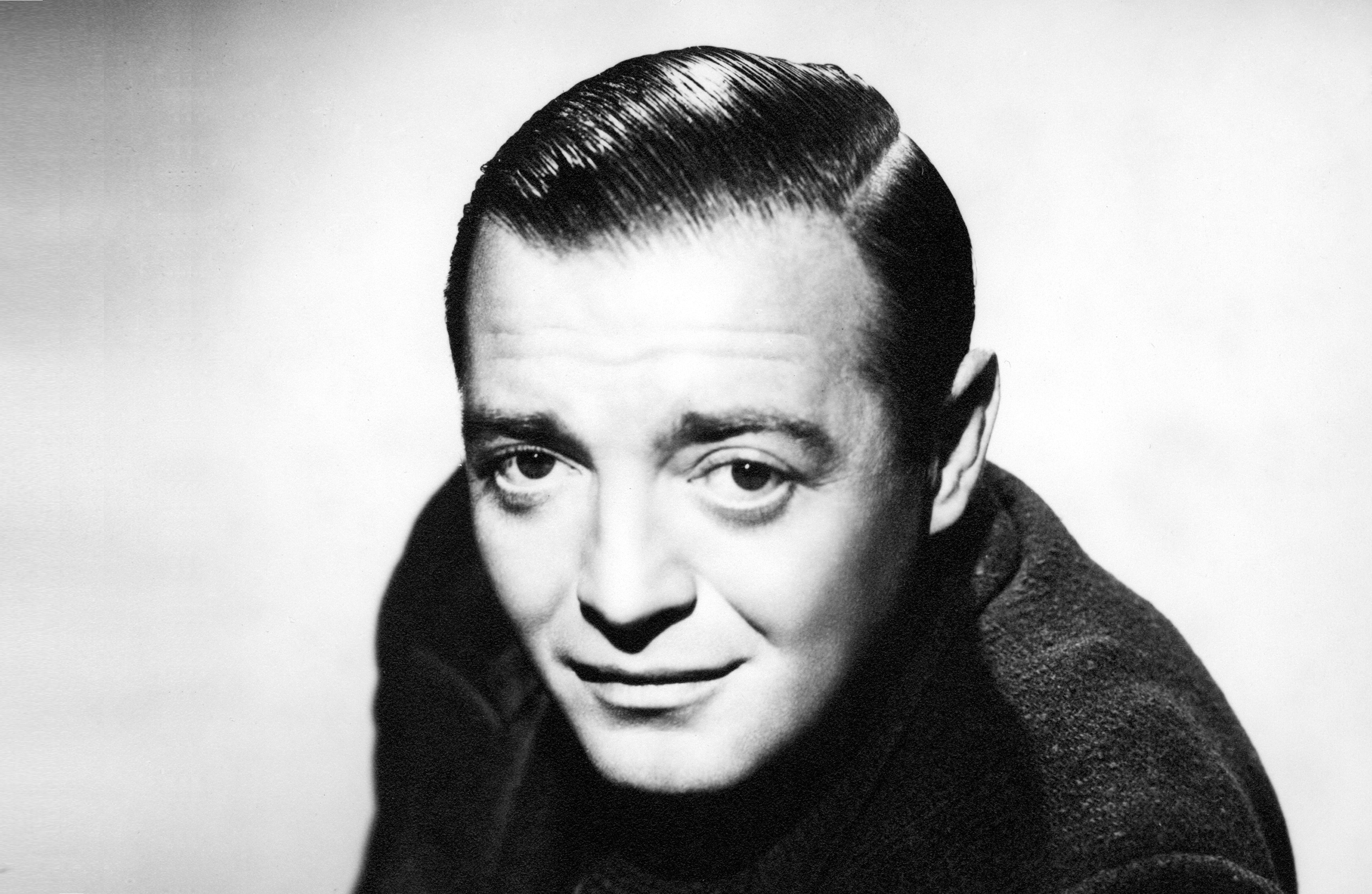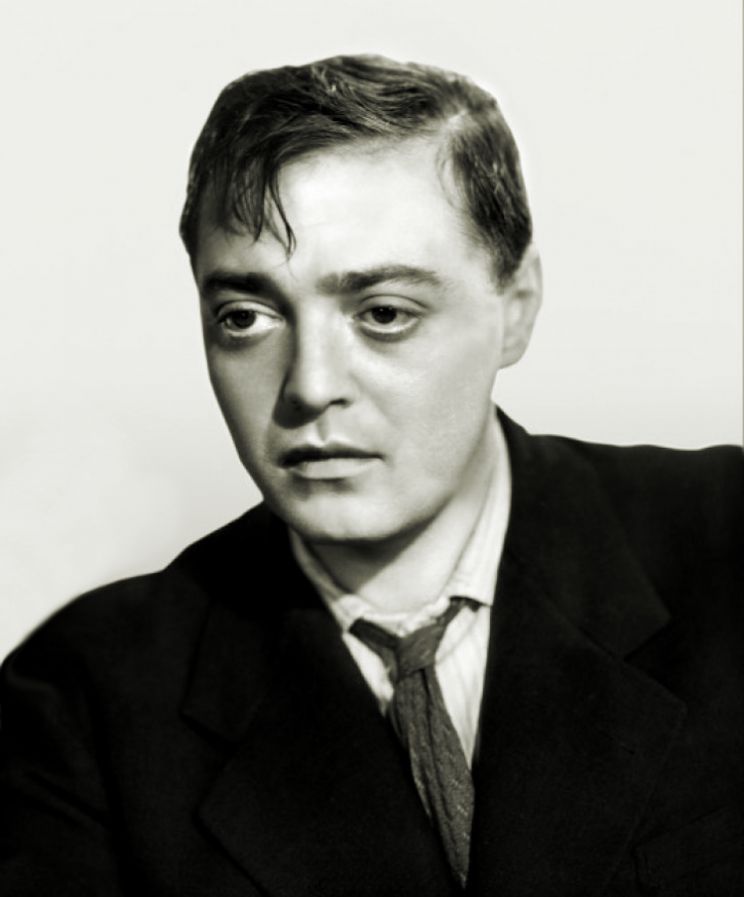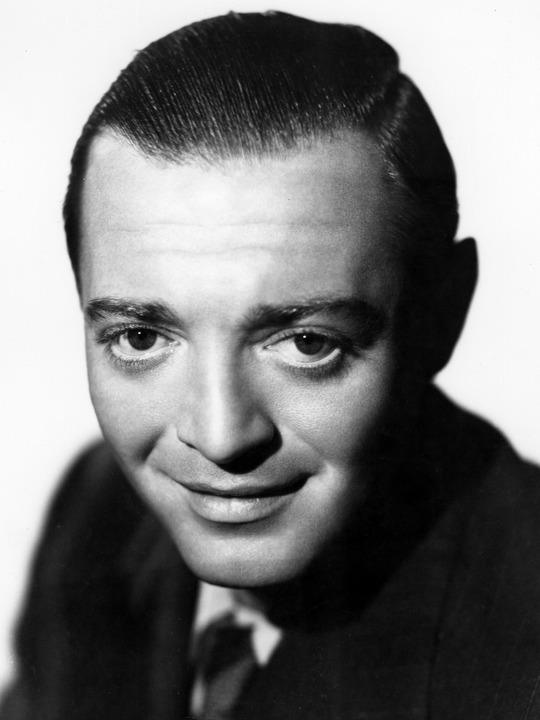Peter Lorre - A Look At A Screen Legend
There are some performers who truly leave a mark, and Peter Lorre, a Hungarian and American actor, is certainly one of those unforgettable figures. He became widely known for playing unsettling parts in movies like "M," "The Maltese Falcon," and "Casablanca." His distinctive screen presence, with those expressive eyes and that very particular way of speaking, made him stand out in every scene he graced. It is almost as if he was born to bring these complex, often dark, characters to vivid life for audiences across the globe.
His journey to Hollywood, you see, was one filled with its own set of challenges, as he had to leave Nazi Germany to find a new home for his considerable talents. Once settled in the United States, he quickly found his footing, sharing the screen with other cinema greats such as Humphrey Bogart and Sydney Greenstreet. He helped shape some truly iconic pictures, and his contributions remain a significant part of cinematic history. His work, in a way, continues to be a point of fascination for many film enthusiasts.
This discussion will take a closer look at his remarkable life and the work he produced, from his earliest acting experiences to his lasting influence on movies. We will consider his celebrated roles, the personal aspects of his life, and the unique challenges he encountered along the way. It is a story, basically, of an individual who, through sheer talent and a compelling persona, carved out a truly special place in the annals of motion pictures.
- Sarah Mccorquodale
- Aubrey Saget
- Jayshree Gaikwad Webseries
- Jayshree Gaikwad Web Series
- How To Access Raspberry Pi Remotely Over The Internet
Table of Contents
- The Early Life and Beginnings of Peter Lorre
- How Did Peter Lorre Become So Well Known?
- Peter Lorre's Distinctive Voice and Screen Presence
- What Were Peter Lorre's Most Famous Film Appearances?
- Peter Lorre's Work Beyond the Big Screen
- What Challenges Did Peter Lorre Face in His Career?
- Peter Lorre's Lasting Legacy in Cinema
- Remembering Peter Lorre's Personal Side
- How Did Peter Lorre Shape His Roles?
The Early Life and Beginnings of Peter Lorre
Born László Löwenstein in 1904, the person who would become known worldwide as Peter Lorre started his journey far from the bright lights of Hollywood. His early years saw him grow up in a different part of the world, a place that would shape his initial experiences. He was, as a matter of fact, a product of Berlin's lively experimental theatre scene after World War I, a period where artistic expression truly blossomed and pushed boundaries. This was where he began to sharpen his acting skills, taking on parts in plays by celebrated playwrights such as Shakespeare, Goethe, and Shaw. It was this rigorous training that helped him develop the foundational abilities that would serve him throughout his long and impactful career. His acting style, you know, really started to take shape during this formative time.
His early work in German movies often saw him taking on parts that were quite unsettling, setting a pattern for the kinds of characters he would become famous for portraying. These early experiences, basically, laid the groundwork for his eventual international recognition. He cultivated a style that was very much his own, a blend of intensity and a certain unsettling quality that audiences found both compelling and, at times, a little bit frightening. His beginnings, therefore, were quite different from the grand scale of his later successes, yet they were absolutely essential to his development as an artist.
Personal Details and Bio Data of Peter Lorre
| Detail | Information |
|---|---|
| Full Name at Birth | László Löwenstein |
| Date of Birth | 1904 |
| Place of Birth | Rózsahegy, Hungary (now Ružomberok, Slovakia) |
| Nationality | Hungarian, later American |
| Known For | Sinister roles, unique voice, intense character portrayals |
| Notable Collaborators | Fritz Lang, Alfred Hitchcock, Humphrey Bogart, Sydney Greenstreet |
| Key Genres | Film noir, horror, mystery, crime films |
How Did Peter Lorre Become So Well Known?
Peter Lorre truly made an international splash in 1931 with his performance in the German film "M." This movie, directed by Fritz Lang, featured Lorre as a serial killer who targeted young girls, and his portrayal was nothing short of chilling. It was a role that, quite frankly, caused a worldwide stir and brought him a significant amount of attention. The power of his acting in "M" was such that it left a lasting impression on viewers and critics alike, making him a recognized name far beyond Germany's borders. His ability to convey such a dark and disturbing character with such depth was, in a way, something truly remarkable and set him apart from many other actors of his time.
Before his film success, as I was saying, Lorre had already been honing his craft on the stage. He was a product of Berlin's experimental theater scene that emerged after World War I, a period of significant artistic exploration. Here, he spent time perfecting his acting abilities in plays by literary giants like Shakespeare, Goethe, and Shaw. This theatrical background gave him a strong foundation, allowing him to develop a wide range of expressive tools that he would later use to such great effect in front of the camera. The discipline and the artistry he cultivated in these early stage performances were, in some respects, clearly visible in his later screen work.
His impressive work in "M" very quickly caught the eye of Hollywood, leading to his transition to English-language films. This move was a big step, allowing his unique talents to reach an even broader audience. His debut in an English film was for the renowned director Alfred Hitchcock, a collaboration that further cemented his growing reputation. It was a clear sign that his distinct acting style transcended language barriers, and that his ability to create memorable characters was something truly universal. He quickly became, you know, a sought-after presence in the American film industry, ready to take on new and exciting parts.
Peter Lorre's Distinctive Voice and Screen Presence
One of the most striking things about Peter Lorre was his voice, which was truly one of a kind. It possessed a quality that could be both soothing and unsettling, adding an extra layer to his already intense character portrayals. This unique vocal characteristic, along with his expressive eyes and often understated movements, contributed to a screen presence that was instantly recognizable and deeply impactful. He had a way of drawing you in, even when playing characters who were, basically, quite sinister or troubled. His manner of speaking, too, was almost a character in itself, lending a particular flavor to every line he uttered.
What made Peter Lorre particularly special was his skill in adding layers to his parts. He had a knack for bringing a touch of dark humor to his villainous roles, making them feel more complex and less like straightforward bad guys. Conversely, when he played comic parts, he would often shade them with subtle, unsettling undertones, creating characters that were both funny and a little bit disquieting. This ability to blend different emotional qualities into a single performance was a true mark of his artistry. It showed, quite clearly, his deep understanding of human nature and his capacity to present it in a compelling way on screen. He was, in fact, a master of nuance.
What Were Peter Lorre's Most Famous Film Appearances?
After making a significant impact in German cinema, Peter Lorre found a new home in Hollywood, where he became a popular and often-featured player in crime films and mysteries. He really made his mark in movies like "The Maltese Falcon" and "Casablanca," where he often appeared alongside other well-known actors. His performances in these pictures were consistently strong, helping to define the atmosphere and tone of these classic works. He had a way of making even smaller parts feel important, adding depth and intrigue to the overall story. His presence, basically, was always felt, even when he wasn't the central figure.
He frequently shared the screen with two other prominent actors of the time, Humphrey Bogart and Sydney Greenstreet. This trio formed a memorable combination, appearing together in several films and creating a distinct dynamic that audiences really enjoyed. Their interactions, often filled with clever dialogue and subtle power struggles, became a hallmark of these pictures. Lorre's particular style complemented Bogart's tough demeanor and Greenstreet's imposing presence, creating a truly compelling ensemble. It was, in a way, a very successful collaboration that produced some truly enduring cinematic moments.
Beyond his well-known crime dramas, Peter Lorre also took on a variety of other interesting roles. For instance, he was part of a film that involved a ship investigating mysterious sinkings, where it came across an advanced submarine commanded by a captain named Nemo. This particular role showed his versatility, allowing him to step into a different kind of story setting. His ability to adapt to various genres, from dark thrillers to adventurous tales, really speaks to his broad range as a performer. He was, you know, always ready to take on something new and different, which kept his career fresh and engaging for audiences.
Peter Lorre's Work Beyond the Big Screen
While Peter Lorre is most remembered for his work in feature films, his talent also extended to other forms of media. For example, the powerful role he played in Fritz Lang's "M" was so impactful that he later reprised it in an American remake of the film. This shows just how iconic his original performance was, that it warranted a reinterpretation with him still in the lead. It's almost as if his connection to that character was simply undeniable, and producers wanted to capture that magic again for a new audience. His willingness to revisit such a challenging part speaks volumes about his dedication to his craft.
Additionally, Peter Lorre also appeared in the British television series "The Adventures of Sherlock Holmes." This venture into the world of television further demonstrates his willingness to explore different acting avenues and reach viewers through various platforms. His presence in a series based on such a classic literary figure would have undoubtedly brought a unique flavor to the show. It highlights his continuous work and his desire to keep acting, no matter the medium. He was, in short, a working actor who sought out opportunities to showcase his abilities wherever they might be found.
What Challenges Did Peter Lorre Face in His Career?
Peter Lorre's life and career were not without significant difficulties. One of the most profound challenges he faced was having to flee Nazi Germany. This was a time of great upheaval and danger, and making the decision to leave one's home and start anew in a different country would have been incredibly difficult. His departure from Germany was a direct consequence of the political climate, forcing him to seek safety and professional opportunities elsewhere. It was, quite frankly, a brave step that allowed him to continue his artistic pursuits in a place where he could work freely. This personal hardship, too, undoubtedly shaped his perspective and, perhaps, even influenced the intensity he brought to some of his roles.
The source material mentions that Peter Lorre experienced "struggles" throughout his life. While the specifics of these struggles are not detailed, it is fair to say that a life in the public eye, especially for someone who portrayed such intense characters, can come with its own set of pressures. Adapting to a new country, learning a new language for acting, and consistently finding work in a competitive industry would have presented their own unique difficulties. These challenges, in a way, are part of the broader human experience, and it suggests that even those who achieve great fame often contend with their own personal battles. His journey, basically, was one that required considerable resilience and determination.
Peter Lorre's Lasting Legacy in Cinema
Peter Lorre is widely regarded as one of the very best character actors to have ever worked in Hollywood. His ability to fully embody a wide range of roles, often bringing a sense of unsettling depth or quirky humor, set him apart. He wasn't always the leading man, but his performances were consistently memorable and often stole the show. His unique approach to acting left an enduring impression on the film world, inspiring countless performers who came after him. He proved, quite clearly, that supporting roles could be just as powerful and impactful as those at the very center of a story.
His influence extended across several film types, making him a true staple in film noir, horror, and mystery genres. He helped shape the look and feel of these particular kinds of movies with his distinctive presence and compelling portrayals. His work in these areas contributed to the establishment of certain character archetypes and storytelling conventions that are still recognized today. His performances, in short, became a benchmark for how to portray complex and often morally ambiguous characters in a way that truly resonated with audiences. He was, in fact, a significant force in defining the atmosphere of these popular film styles.
Remembering Peter Lorre's Personal Side
Beyond his professional achievements, the life of Peter Lorre also included personal milestones, such as his marriages. While the details of these relationships are not fully laid out in the provided information, their mention suggests that his life outside of acting was also an important part of his story. These personal connections, like anyone's, would have contributed to his experiences and, perhaps, even informed some of his artistic expressions. It reminds us, you know, that behind the iconic screen persona was a person living a full and multifaceted life, complete with its own joys and sorrows.
His passing, like his life, marks an important point in his story. The information notes his death, which is a natural conclusion to any biography. For those interested in learning more about the intricacies of his personal journey, there is a book titled "The Lost One, A life of Peter Lorre" by Stephen D. This book, basically, offers a deeper look into the various aspects of his existence, providing more context to the life of this distinguished actor. It's a way, too, for people to connect with the man behind the famous roles and gain a richer appreciation for his contributions.
How Did Peter Lorre Shape His Roles?
Peter Lorre possessed a remarkable ability to add depth and complexity to every part he took on. When he played villainous characters, he often infused them with a subtle touch of dark humor, making them more than just one-dimensional figures. This unexpected twist made his antagonists more intriguing and, in a way, more human, despite their sinister actions. It showed his understanding that even the most unpleasant individuals can have different facets to their personality. His performances were, as a matter of fact, always layered, inviting viewers to look beyond the surface of the character.
Conversely, when he took on roles that were meant to be comical, he had a unique knack for shading them with unsettling undertones. This meant that even in lighter moments, there was a hint of something a little bit off or disquieting about his characters. This particular skill made his comic performances stand out, giving them a memorable edge that was distinctly Peter Lorre. His powerful impact on screen, therefore, came not just from the parts he chose, but from the way he uniquely interpreted and brought those characters to life, adding his own special blend of qualities to each one. He was, simply put, a master of bringing nuance to his portrayals.

Peter Lorre - Turner Classic Movies

Pictures of Peter Lorre

Picture of Peter Lorre